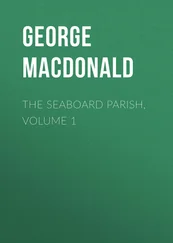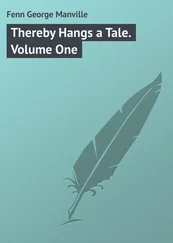George Warburton - The Conquest of Canada, Vol. 1
Здесь есть возможность читать онлайн «George Warburton - The Conquest of Canada, Vol. 1» — ознакомительный отрывок электронной книги совершенно бесплатно, а после прочтения отрывка купить полную версию. В некоторых случаях можно слушать аудио, скачать через торрент в формате fb2 и присутствует краткое содержание. Жанр: foreign_prose, История, foreign_edu, foreign_antique, на английском языке. Описание произведения, (предисловие) а так же отзывы посетителей доступны на портале библиотеки ЛибКат.
- Название:The Conquest of Canada, Vol. 1
- Автор:
- Жанр:
- Год:неизвестен
- ISBN:нет данных
- Рейтинг книги:5 / 5. Голосов: 1
-
Избранное:Добавить в избранное
- Отзывы:
-
Ваша оценка:
- 100
- 1
- 2
- 3
- 4
- 5
The Conquest of Canada, Vol. 1: краткое содержание, описание и аннотация
Предлагаем к чтению аннотацию, описание, краткое содержание или предисловие (зависит от того, что написал сам автор книги «The Conquest of Canada, Vol. 1»). Если вы не нашли необходимую информацию о книге — напишите в комментариях, мы постараемся отыскать её.
The Conquest of Canada, Vol. 1 — читать онлайн ознакомительный отрывок
Ниже представлен текст книги, разбитый по страницам. Система сохранения места последней прочитанной страницы, позволяет с удобством читать онлайн бесплатно книгу «The Conquest of Canada, Vol. 1», без необходимости каждый раз заново искать на чём Вы остановились. Поставьте закладку, и сможете в любой момент перейти на страницу, на которой закончили чтение.
Интервал:
Закладка:
But disaster and destruction soon fell upon these bold and merciless adventurers. In a second voyage, the ensuing year, Cortereal and all his followers were lost at sea: when some time had elapsed without tidings of their fate, his brother sailed to seek them; but he too, probably, perished in the stormy waters of the North Atlantic, for none of them were ever heard of more. The King of Portugal, feeling a deep interest in these brothers, fitted out three armed vessels and sent them to the northwest. Inquiries were made along the wild shores which Cortereal had first explored, without trace or tidings being found of the bold mariner, and the ocean was searched for many months, but the deep still keeps it secret.
Florida was discovered in 1512 by Ponce de Leon, one of the most eminent among the followers of Columbus. The Indians had told him wonderful tales of a fountain called Bimini, in an island of these seas; the fountain possessed the power, they said, of restoring instantly youth and vigor to those who bathed in its waters. He sailed for months in search of this miraculous spring, landing at every point, entering each port, however shallow or dangerous, still ever hoping; but in the weak and presumptuous effort to grasp at a new life, he wasted away his strength and energy, and prematurely brought on those ills of age he had vainly hoped to shun. Nevertheless, this wild adventure bore its wholesome fruits, for Ponce de Leon then first brought to the notice of Europe that beautiful land which, from its wonderful fertility and the splendor of its flowers, obtained the name of Florida. 56
The first attempt made by the French to share in the advantages of these discoveries was in the year 1504. Some Basque and Breton fishermen at that time began to ply their calling on the Great Bank of Newfoundland, and along the adjacent shores. From them the Island of Cape Breton received its name. In 1506, Jean Denys, a man of Harfleur, drew a map of the Gulf of St. Lawrence. Two years afterward, a pilot of Dieppe, named Thomas Aubert, excited great curiosity in France by bringing over some of the savage natives from the New World: there is no record whence they were taken, but it is supposed from Cape Breton. The reports borne back to France by these hardy fishermen and adventurers were not such as to raise sanguine hopes of riches from the bleak northern regions they had visited: no teeming fertility or genial climate tempted the settler, no mines of gold or silver excited the avarice of the soldier; 57and for many years the French altogether neglected to profit by their discoveries.
In the mean time, Pope Alexander VI. issued a bull bestowing the whole of the New World upon the kings of Spain and Portugal. 58Neither England nor France allowed the right of conferring this magnificent and undefined gift; it did not throw the slightest obstacle in the path of British enterprise and discovery, and the high-spirited Francis I. of France refused to acknowledge the papal decree. 59
In the year 1523, Francis I. fitted out a squadron of four ships to pursue discovery 60in the west; the command was intrusted to Giovanni Verazzano, of Florence, a navigator of great skill and experience, then residing in France: he was about thirty-eight years of age, nobly born, and liberally educated; the causes that induced him to leave his own country and take service in France are not known. It has often been remarked as strange that three Italians should have directed the discoveries of Spain, England, and France, and thus become the instruments of dividing the dominions of the New World among alien powers, while their own classic land reaped neither glory nor advantage from the genius and courage of her sons. Of this first voyage the only record remaining is a letter from Verazzano to Francis I., dated 8th of July, 1524, merely stating that he had returned in safety to Dieppe.
At the beginning of the following year Verazzano fitted out and armed a vessel called the Dauphine, manned with a crew of thirty hands, and provisioned for eight months. He first directed his course to Madeira; having reached that island in safety, he left it on the 17th of January and steered for the west. After a narrow escape from the violence of a tempest, and having proceeded for about nine hundred leagues, a long, low line of coast rose to view, never before seen by ancient or modern navigators. This country appeared thickly peopled by a vigorous race, of tall stature and athletic form; fearing to risk a landing at first with his weak force, the adventurer contented himself with admiring at a distance the grandeur and beauty of the scenery, and enjoying the delightful mildness of the climate. From this place he followed the coast for about fifty leagues to the south, without discovering any harbor or inlet where he might shelter his vessel; he then retraced his course and steered to the north. After some time Verazzano ventured to send a small boat on shore to examine the country more closely: numbers of savages came to the water's edge to meet the strangers, and gazed on them with mingled feelings of surprise, admiration, joy, and fear. He again resumed his northward course, till, driven by want of water, he armed the small boat and sent it once more toward the land to seek a supply; the waves and surf, however, were so great that it could not reach the shore. The natives assembled on the beach, by their signs and gestures, eagerly invited the French to approach: one young sailor, a bold swimmer, threw himself into the water, bearing some presents for the savages, but his heart failed him on a nearer approach, and he turned to regain the boat; his strength was exhausted, however, and a heavy sea washed him, almost insensible, up upon the beach. The Indians treated him with great kindness, and, when he had sufficiently recovered, sent him back in safety to the ship. 61
Verazzano pursued his examination of the coast with untiring zeal, narrowly searching every inlet for a passage through to the westward, until he reached the great island known to the Breton fishermen—Newfoundland. In this important voyage he surveyed more than two thousand miles of coast, nearly all that of the present United States, and a great portion of British North America.
A short time after Verazzano's return to Europe, he fitted out another expedition, with the sanction of Francis I., for the establishment of a colony in the newly-discovered countries. Nothing certain is known of the fate of this enterprise, but the bold navigator returned to France no more; the dread inspired by his supposed fate 62deterred the French king and people from any further adventure across the Atlantic during many succeeding years. In later times it has come to light that Verazzano was alive thirteen years after this period: 63those best informed on the subject are of opinion that the enterprise fell to the ground in consequence of Francis I. having been captured by the Emperor Charles V., and that the adventurer withdrew himself from the service of France, having lost his patron's support.
The year after the failure of Verazzano's last enterprise, 1525, Stefano Gomez sailed from Spain for Cuba and Florida; thence he steered northward in search of the long-hoped-for passage to India, till he reached Cape Race, on the south-eastern extremity of Newfoundland. The further details of his voyage remain unknown, but there is reason to suppose that he entered the Gulf of St. Lawrence and traded upon its shores. An ancient Castilian tradition existed that the Spaniards visited these coasts before the French, and having perceived no appearance of mines or riches, they exclaimed frequently, "Aca nada;" 64the natives caught up the sound, and when other Europeans arrived, repeated it to them. The strangers concluded that these words were a designation, and from that time this magnificent country bore the name of Canada. 65
Читать дальшеИнтервал:
Закладка:
Похожие книги на «The Conquest of Canada, Vol. 1»
Представляем Вашему вниманию похожие книги на «The Conquest of Canada, Vol. 1» списком для выбора. Мы отобрали схожую по названию и смыслу литературу в надежде предоставить читателям больше вариантов отыскать новые, интересные, ещё непрочитанные произведения.
Обсуждение, отзывы о книге «The Conquest of Canada, Vol. 1» и просто собственные мнения читателей. Оставьте ваши комментарии, напишите, что Вы думаете о произведении, его смысле или главных героях. Укажите что конкретно понравилось, а что нет, и почему Вы так считаете.












